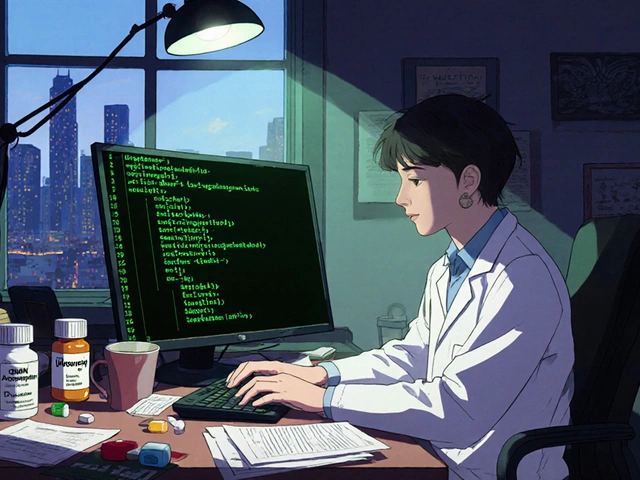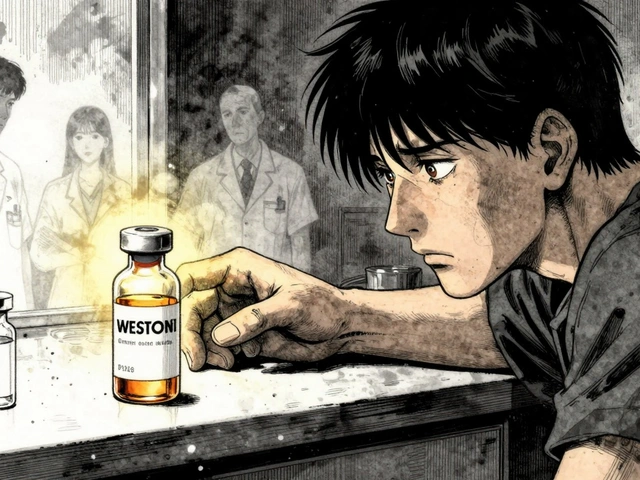Premenstrual Dysphoric Disorder, or PMDD, is a condition that affects a significant number of women, going beyond the typical symptoms of premenstrual syndrome (PMS). This disorder can severely disrupt daily life, making it a critical area of focus for women's health.
Though commonly known for causing severe mood swings and physical discomfort before menstruation, PMDD can have far-reaching effects on both physical and mental health over the long term. Understanding these impacts is essential for those affected and their loved ones.
This article delves into the nature of PMDD, its long-lasting health implications, and how to manage and treat this challenging condition effectively.
What is PMDD?
Premenstrual Dysphoric Disorder, commonly referred to as PMDD, is a severe form of premenstrual syndrome (PMS) that affects millions of women worldwide. Unlike PMS, which can cause mild to moderate physical and emotional symptoms, PMDD can lead to extreme mood disturbances that interfere with daily life. This disorder primarily manifests during the luteal phase of the menstrual cycle, which is the period between ovulation and the beginning of menstruation.
One of the key characteristics of PMDD is its timing. Symptoms typically start five to eleven days before menstruation and usually subside with the onset of menstruation or shortly thereafter. The exact cause of PMDD is not completely understood, but it is believed to be linked to hormonal changes and the body's response to these fluctuations. Research indicates that women with PMDD may have underlying sensitivities to the normal hormonal changes that occur with the menstrual cycle.
Common symptoms of PMDD include severe mood swings, irritability, depression, and anxiety. Physical symptoms such as bloating, breast tenderness, headaches, and joint or muscle pain are also prevalent. The intensity of these symptoms can vary from one woman to another, and the condition can severely impact personal relationships, work, and overall quality of life.
The diagnostic criteria for PMDD have been established by the American Psychiatric Association in the Diagnostic and Statistical Manual of Mental Disorders (DSM-5). For a diagnosis, a woman must experience at least five of the specified symptoms, including one mood-related symptom, for most menstrual cycles in the past year. These symptoms must also cause significant distress or interfere with work, school, social activities, or relationships.
"PMDD is a significant mental health condition that requires appropriate medical recognition and treatment to improve affected women's lives." - Dr. Laura Miller, Harvard Medical School
It is important to note that PMDD is not just a severe form of PMS; it is a distinct clinical condition. Many women may initially think they are experiencing normal PMS, only to find that the severity and impact of their symptoms are much greater. This misunderstanding can lead to a delay in proper diagnosis and treatment, exacerbating the impact on a woman's health and well-being.
Effective management of PMDD often involves a combination of lifestyle changes, medication, and therapy. Engaging in regular physical activity, maintaining a balanced diet, and practicing stress-reducing techniques like yoga or meditation can help alleviate some symptoms. Medical treatments may include antidepressants, hormonal therapies, or nonsteroidal anti-inflammatory drugs (NSAIDs) to address physical discomfort.

Physical Health Impacts
PMDD is often viewed mainly as a mental health issue due to its severe emotional and psychological symptoms. However, the disorder can also lead to a series of long-term physical health impacts that are critical to understand. Women living with PMDD frequently experience physical symptoms like bloating, headaches, joint or muscle pain, and tenderness in the breasts. While these might seem typical of PMS, their intensity and persistence are significantly greater in PMDD.
One lesser-known issue is the impact on gastrointestinal health. Digestive problems such as constipation or diarrhea can become chronic due to the hormonal fluctuations that characterize PMDD. Persistent gastrointestinal disturbances can lead to more severe conditions like irritable bowel syndrome (IBS), potentially requiring medical intervention.
Moreover, PMDD has a notable correlation with hormonal imbalances, which can affect reproductive health long-term. Chronic problems with regulating menstrual cycles can result in complications like heavy menstrual bleeding and even fertility challenges. Hormonal imbalances may also contribute to conditions like polycystic ovary syndrome (PCOS), which has its own set of health challenges.
Another critical aspect is the impact on cardiovascular health. Studies indicate that women with chronic PMDD may have a higher risk of developing hypertension and other cardiovascular issues. This risk may be linked to the increased levels of stress and anxiety associated with PMDD, which can raise blood pressure levels over time.
Chronic pain is another significant concern. Persistent joint and muscle pain often reported by PMDD sufferers can lead to reduced mobility and overall physical activity. This reduction in movement can contribute to weight gain and associated health issues like diabetes and metabolic syndrome.
In terms of general wellness, sleep disturbances are quite common among those with PMDD. Continuous sleep problems can lead to a weakened immune system, making the body more prone to catching illnesses. This lack of restorative sleep also exacerbates both physical and mental symptoms, creating a vicious cycle of declining health.
It's crucial for individuals with PMDD to understand these physical health risks and take proactive steps in managing their condition. Regular exercise, a balanced diet, and proper medical care play vital roles in mitigating these physical impacts.
According to Dr. Sarah Brown, a renowned gynecologist, "Women with PMDD need comprehensive care that looks at both their emotional and physical health. Long-term management can significantly improve their quality of life."
Raising awareness about the physical health impacts of PMDD not only helps in better management of the condition but also builds a support system for those affected. Early intervention and holistic treatment approaches can make a substantial difference in living a healthy, fulfilling life despite the challenges posed by PMDD.

Mental Health Consequences
Living with Premenstrual Dysphoric Disorder, or PMDD, can take a significant toll on a woman's mental health. Unlike the more common premenstrual syndrome (PMS), PMDD can severely disrupt emotional well-being and everyday activities. The mood swings, irritability, and severe depression associated with PMDD are profound and can deeply affect one's quality of life.
Women with PMDD often report feeling a sense of hopelessness and despair during the luteal phase of their menstrual cycle. This severe mood disturbance is more intense than the mild irritability or sadness some might experience with PMS. These emotional symptoms can impair relationships, job performance, and overall social functioning. This isn't just a case of feeling a bit down; it's a debilitating aspect of the disorder that needs proper attention and care.
One of the key mental health implications of PMDD is its association with anxiety disorders. Many women with PMDD exhibit heightened levels of anxiety and panic attacks. This can lead to avoiding social situations and a significant reduction in the quality of life. A 2019 study published in the Journal of Affective Disorders found that women with PMDD have a higher likelihood of developing generalized anxiety disorder compared to those without the condition.
Women with PMDD are also at an increased risk of developing major depressive disorder (MDD). The cyclical nature of PMDD can exacerbate underlying depression or bring about depressive episodes in those who haven't previously experienced them. In some cases, women may experience suicidal thoughts or behaviors as a result of the extreme emotional distress caused by PMDD. It's crucial to acknowledge these feelings and seek support from mental health professionals.
During flare-ups of PMDD, cognitive functions can also be impaired. Many women report difficulties with concentration, memory, and decision-making. These cognitive disturbances can lead to further frustration and exacerbate feelings of inadequacy or failure. The overlap of these symptoms with those of other mental health conditions can often complicate the diagnosis and treatment process.
Stigma and misunderstanding around PMDD can also contribute to mental health issues. Women suffering from PMDD might feel invalidated by those who don't understand the severity of their symptoms. This lack of support can compound feelings of isolation and make it even more challenging to seek help. Raising awareness about PMDD is essential in breaking down these barriers to acceptance and support.
“PMDD is not just in your head; it's a real, debilitating disorder that requires understanding and comprehensive care,” says Dr. Susan Garrison, a renowned expert in women's mental health.
Effective management of PMDD's mental health consequences is crucial. Approaches such as cognitive-behavioral therapy (CBT) and other forms of psychotherapy can help women cope with the emotional and psychological impact of the disorder. Medications, including antidepressants and hormonal treatments, can also be effective. It's important for women to work closely with their healthcare providers to find a personalized treatment plan that addresses both the emotional and physical symptoms.
Building a robust support system, whether through friends, family, or support groups, can make a significant difference. Knowing that you're not alone and that others understand your struggle can provide immense comfort and encouragement.

Management and Treatment Options
Living with Premenstrual Dysphoric Disorder (PMDD) can feel like an uphill battle, but there are several strategies to manage the condition and lessen its impact on day-to-day life. The first step in handling PMDD is understanding your body and the specific ways the disorder affects you. Keeping a daily journal, noting symptoms, and monitoring emotions can provide insights that help when discussing treatment options with a healthcare provider.
One of the most common approaches to managing PMDD is lifestyle changes. Regular exercise, particularly aerobic activities like walking, jogging, or swimming, can help alleviate some of the physical tension and mood swings associated with PMDD. Additionally, maintaining a balanced diet rich in whole grains, fruits, vegetables, and lean proteins supports overall wellbeing and stabilizes blood sugar levels, potentially reducing mood fluctuations.
Medications
Medications are often prescribed to help manage the symptoms of PMDD. Selective serotonin reuptake inhibitors (SSRIs), including fluoxetine and sertraline, have been shown to be particularly effective. These medications can be taken throughout the month or cyclically, depending on a doctor's recommendation. Hormonal treatments such as birth control pills that suppress ovulation can also be helpful for some women. It's crucial to note that medication effectiveness can vary, and it might take some time to find the right one or combination that works for you.
"SSRI treatment significantly improves the quality of life for many women with PMDD," says Dr. Jane Frederick, a reproductive endocrinologist.
Therapy and Support
Therapy can be an invaluable tool in managing PMDD. Cognitive-behavioral therapy (CBT) specifically has demonstrated effectiveness in helping women recognize and change negative thought patterns and behaviors. Support groups, whether online or in-person, also offer a community of individuals who understand what you're going through. Sharing experiences and advice can provide emotional relief and practical tips. Additionally, stress management techniques such as yoga, meditation, or mindfulness practices can significantly reduce the emotional burden of PMDD.
Supplementary Treatments
In addition to conventional treatments, some women find relief through supplementary treatments. Nutritional supplements such as calcium, magnesium, and vitamin B6 have been reported to reduce symptoms in some cases. Herbal remedies like chasteberry may also offer benefits, though it’s essential to consult with a healthcare provider before starting any new supplement.
An integrated approach combining lifestyle changes, medication, therapy, and supplementary treatments tends to offer the best outcomes. Each woman's experience with PMDD is unique, and it may take time and experimentation to find the most effective combination.





Kristen Magnes
June 21, 2024 at 21:01
Just wanted to say this article nailed it. I’ve been living with PMDD for over a decade and no one talks about how it slowly erodes your physical health-like how chronic pain makes you skip workouts, which leads to weight gain, which makes your hormones worse. It’s a loop. But recognizing it? That’s the first step to breaking it.
Also, yoga isn’t just ‘chill vibes’-it’s neuroscience. Studies show it lowers cortisol more than some meds. Try it before you dismiss it.